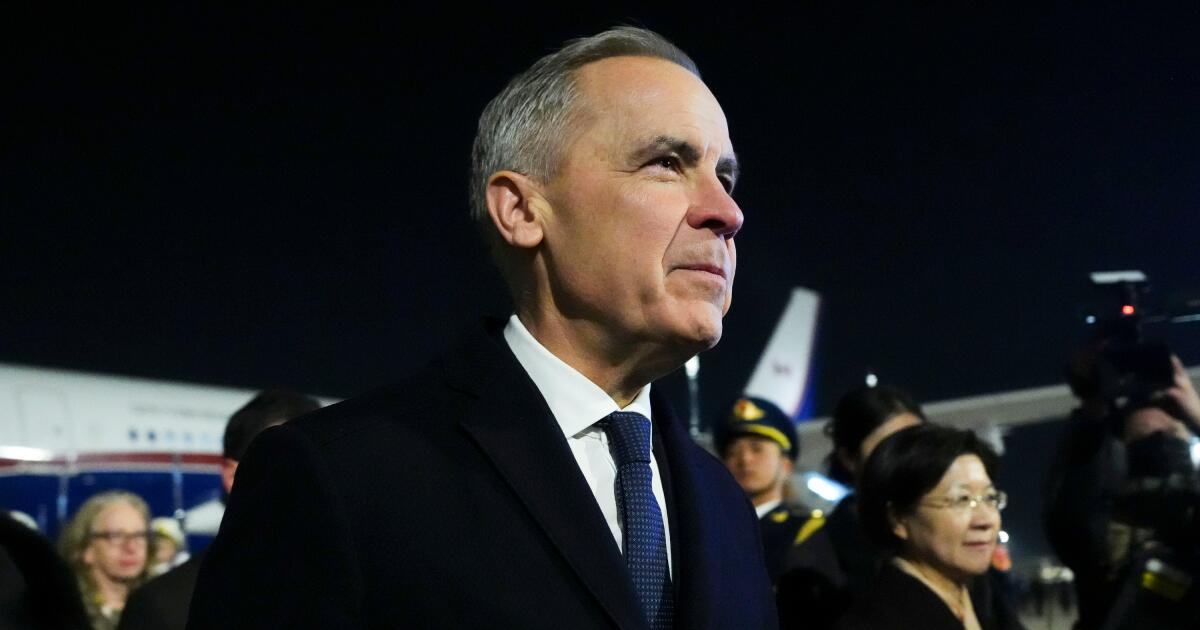Canadian Prime Minister Mark Carney begins landmark 4-day visit to China to mend ties
BEIJING — Canadian Prime Minister Mark Carney arrived in Beijing on Wednesday night, beginning a four-day visit designed to repair foundering relations between the two nations as Canada looks to develop ties with countries other than the United States.
It’s the first visit of a Canadian leader to China in nearly a decade. Carney will meet with Premier Li Qiang, his counterpart as head of government, and Chinese President Xi Jinping.
“We will double non-U.S. trade over the 10 years. That means we are cognizant of that fact that the global economic environment has fundamentally changed and that Canada must diversify its trading partners,” Canadian Foreign Affairs Minister Anita Anand said in Beijing after she arrived with Carney for the visit.
China’s state media has been calling on the Canadian government to set a foreign policy path independent of the United States — what it calls “strategic autonomy.”
Canada has long been one of America’s closest allies, geographically and otherwise. But Beijing is hoping that President Donald Trump’s economic aggression — and, now, military action — against other countries will erode that long-standing relationship. Trump has said, among other things, that Canada could become the 51st U.S. state.
Carney has focused on trade, describing the trip to China as part of a move to forge new partnerships around the world to end Canada’s economic reliance on the American market. Trump has hit Canada with tariffs on its exports to the United States and suggested the vast, resource-rich country could become America’s 51st state.
The Chinese government bristled at former President Biden’s efforts to strengthen relations with Europe, Australia, India, Canada and others to confront China. Now it sees an opportunity to try to loosen those ties, though it remains cautious about how far that will go.
The downturn in relations started with the arrest of a Chinese tech executive in late 2018 at American request and was fueled more recently by the government of former Prime Minister Justin Trudeau, which decided in 2024 to follow Biden’s lead in imposing a 100% tariff on Chinese-made electric vehicles. China has retaliated for both that and a 25% tariff on steel and aluminum with its own tariffs on Canadian exports including canola, seafood and pork.
“The conversation has been productive. The negotiations are continuing,” Anand said when asked if she was optimistic about a deal to reduce tariffs on canola. “Prime Minister Carney is here to recalibrate the Canada-China relationship.”
Carney met with Xi in October at the Asia-Pacific Economic Cooperation summit in South Korea.
Anthony and Gillies write for the Associated Press. Gillies reported from Toronto.
